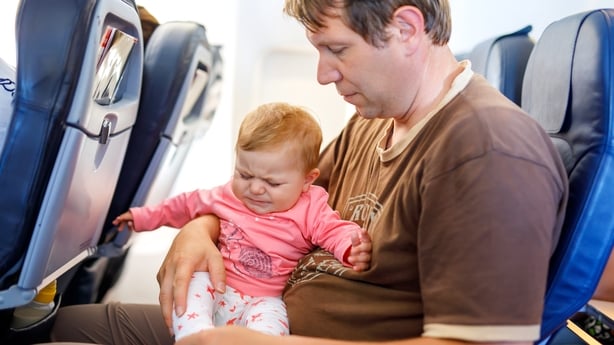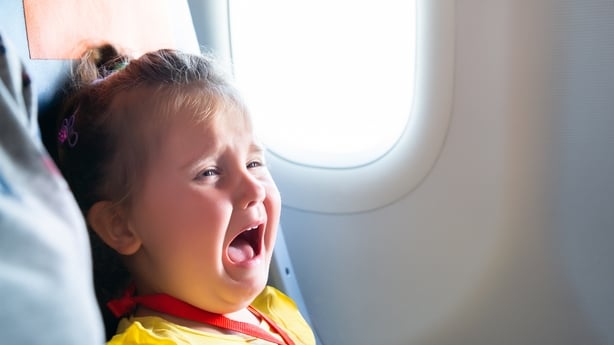There's only one thing worse than sitting near a crying baby on a plane, and that's being the parent of said crying baby, doing their best to calm their little one.
No matter how hard you try to keep them occupied or lull them to sleep, sometimes there's simply not much parents can do, and this may come down to Eustachian Tube Dysfunction, or ETD as it's commonly known.
Babies can struggle with the sensations and experiences of flying, thanks to the pressure build-up and popping ears that plague even us adult travellers.
This is because their eustachian tubes – the miniscule tubes that connect the middle ear to the throat – haven't fully developed yet.

For this reason, it can be especially hard for babies to equalise pressure in the middle ear, which can cause painful aches and sensations. If you've ever had a pressure headache from flying, you'll no doubt have more sympathy for the smallies now.
These tubes are responsible for making sure that pressure is equally distributed between the outer and middle ear, and they drain fluid away from the middle ear to keep the passageways clear. They are usually closed but open when you chew, swallow or yawn.
Symptoms can include a feeling of fullness in the ears, changes to hearing, popping sounds, a ticklish feeling in the ear, pain, tinnitus symptoms such as ringing, humming or whooshing sounds, tenderness in one or both ears and dizziness or difficulty keeping your balance.

Sarah Sheehan, Senior Audiologist at Hidden Hearing Ireland, says, "We've all experienced an uncomfortable pressure build-up in our ears at some stage. Cabin pressure can be especially difficult for the ears to regulate as it builds when the plane ascends and descends."
However, Sheehan has some tips for combatting the uncomfortable condition:
"For tiny travellers, we recommend giving them a bottle or dummy to suck on when the plane is landing or taking off. This sucking sensation helps to open the eustachian tubes to prevent any painful blockages and can offer great relief to small children", she explains.
"For more seasoned travellers, sucking on a sweet, yawning and chewing gum can all help to regulate your middle ear at times when cabin pressure is on the rise. If it is too late for preventative measures and you're already experiencing a painful blockage in your middle ear, you can ease this by holding your nose and blowing with a closed mouth."
Keep in mind that prevention is better than cure and managing symptoms can help you minimise the risk of middle ear damage which comes from flying with ETD.
Always contact your GP or your audiologist if you have concerns about your ear health.

